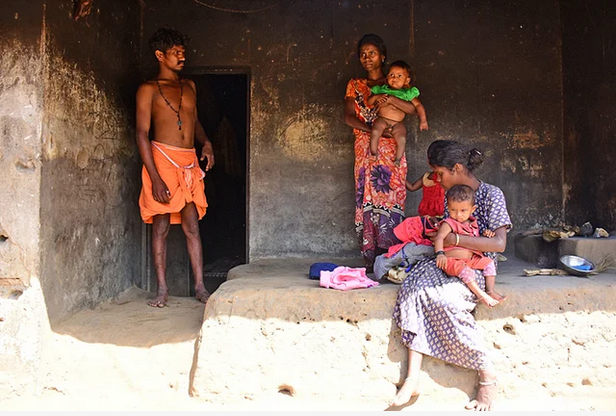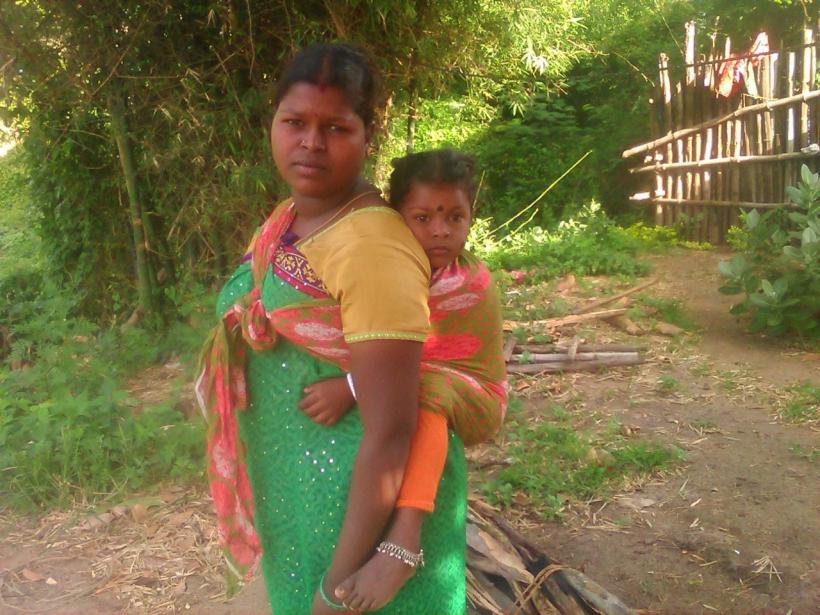
Amid the pandemic, many forest dwelling tribal families in Tamil Nadu are suffering from something worse than COVID-19, that is hunger.
Their livelihoods have been adversely affected by the pandemic-induced lockdowns imposed by the state government. They depend on selling the minor forest produce they procure from the wild in towns downhill, but are unable to transport their produce because government buses are not running during the lockdowns.
Even though forest dwellers are not the only ones whose livelihoods are affected by the lockdowns, but what is peculiar to them is that a large section of them do not have access to government relief measures as they do not have ration cards.
Neither the Rs 4,000 monetary support nor the Corona relief kit with 13 grocery items, which were recently doled out by the Tamil Nadu government, reached these lockdown affected tribal families. Besides that, they are unable to access regular supplies of subsidised rice, pulses, oil, etc.
Disconnection from the state, lack of education and more importantly the increased use of technology in the name of e-governance are cited as reasons for inaccessibility to the ration cards.
A study by Ekta Parishad, a movement working on land and forest rights, claims that there are 40,000 such tribal families in Tamil Nadu which still do not possess ration cards despite being eligible. The organisation has appealed to the state government to immediately provide ration cards to them.
PUSHED TO SURVIVE ON TUBERS
NewsClick spoke with Bhuwaneshwari, a member of the Pulayar community in Kattupatti tribal village within the Anamalai Tiger Reserve region, Tiruppur district. Unable to sell their forest produce due to the COVID-19 lockdown restrictions and unable to access government relief without a family ration card, she said, “We have been living on porridge made from wild tubers, how long can we go on surviving on these tubers? We need some form of relief.”

For four years she and her husband have been unsuccessfully struggling to get a ration card for their family.
Like most other forest dwellers, their only source of income is the minor forest produce from the wild. Bhuwaneshwari and her husband harvest groundnuts, ragi, beans and gooseberries, which they take downhill to sell in towns.
“Though we are not able to sell our produce, we continue to harvest. I walk 10 kms into the forest every morning, it takes me around two hours to reach our spot. We start at eight in the morning and return by five in the evening. Right now, we are harvesting groundnuts, which we are stocking up in the hope that we can soon take it down and sell it in the mandi,” she said.
Meanwhile, for survival Bhuwaneshwari has been borrowing money from community members. She hopes that pre-COVID 19 life will soon resume and she can return all the borrowed money.
E-GOVERNANCE A MAJOR HASSLE
There are about 7.94 lakh tribal people living in Tamil Nadu, as per official data. Of these, 6.6 lakh people live in forests and forested areas.
The gap between the forest dwelling communities and the rest of society and the state administration is still huge. This divide worsened during the lockdown, as numerous mountain and forest villages were cut off from the rest of the world.
Danraj of Ekta Parishad, who has been fighting for their cause, said, “Forest dwellers do not have alternate work, they are dependent on the forest. Their maximum produce is in the months of April, May and June, and intense lockdowns were in place during these months in both 2020 and 2021. They have no other form of income generation. It is unfortunate that they are most in need of government relief, but they are the ones who find it most inaccessible.”
He further added, “Salaried government employees are receiving the Rs 4,000 relief, pensioners are receiving it, but the most needy tribal families are not getting it. Denying them government benefits in these dire times just because they do not have ration cards is injustice.”
Danraj said that these tribal communities started coming out of the forest and began adapting to the administrative system only over the past two decades. “They find it difficult because the system in place is distant for them. Even those with ration cards are cheated in the ration shops, government staff usurp the ration due to these tribals. Moreover, everything is run on e-service these days, it makes it worse for them.”
These families are also not eligible for the 100 days guaranteed work under the Mahatma Gandhi National Rural Employment Guarantee Scheme (MGNREGS), Danraj added. Neither does everyone have Aadhar card, which is mandatory for getting the COVID-19 vaccine.
“Fear of vaccines looms large over these communities. Further, they feel that nobody reaches out to them when they demand land pattas, electricity connection and roadways, but when the government makes a decision, such as vaccinating the population, government representatives come to their doorsteps,” he said.
As per the Ekta Parishad study, anywhere between 10% to 40% of each forest dwelling community do not have ration cards. R Sakkarapani, Minister of Food and Civil Supplies in Tamil Nadu, has said that the government would look into the matter and ensure ration cards are issued to forest dwelling families.




